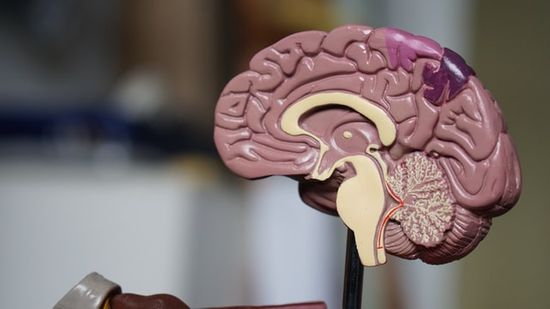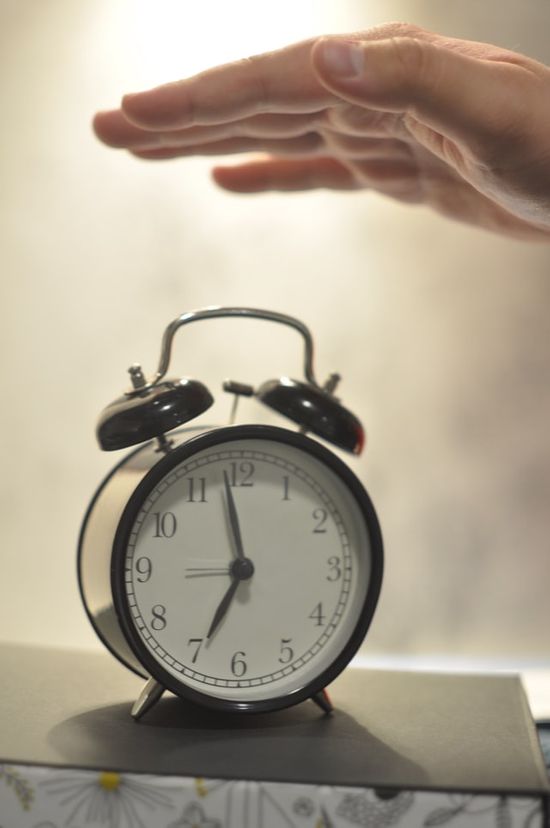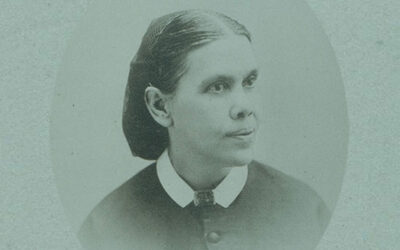Struggling to think straight? Wondering why you can’t remember that important tidbit you heard earlier today? Feeling like your emotions are about to explode?
These are just some of the symptoms that can reveal your need for rest—that simple yet incredibly effective way to strengthen and repair your body, have a clear mind, and balance your emotions.
But simple as it may be, getting enough rest can be something we so easily set aside.
One in three Americans don’t sleep enough—much less rest in other ways.
Our phones are always pinging, crises are demanding our attention, and responsibilities keep piling higher.
The result of our hurried culture is stress. Stress, in turn, affects sleep. And because people aren’t getting quality sleep, their bodies can’t cope with the stress.1 It becomes a vicious cycle.
You may relate to this cycle. Or you’re wondering about the importance of rest as an Adventist health principle. Either way, stay with us to look at:
How a lack of rest is hurting you

Image by Mojca-Peter from Pixabay
Our bodies cry out when we don’t get enough rest. Those cries can show up as exhaustion, sickness, weight gain, a foggy mind, or a depressed mood.
Let’s look at them in more detail:
Exhaustion
It’s more than just being tired. It’s the feeling that you can’t go on any longer. You feel drained without an ounce of energy left to give.
Sickness
Though the body is amazing at adapting to stress and a lack of rest, it eventually begins to break, too.
Without enough rest, the body’s immune system doesn’t function well. This puts us at greater risk of catching colds and other sicknesses.2
We also set ourselves up for chronic diseases—type 2 diabetes, heart disease, and obesity.3
Weight gain
You know that food you reach for late at night? Your favorite sour cream and onion chips. Or that pint (or half-gallon?) of Rocky Road ice cream.
There’s a reason you choose those foods late at night.
When people don’t get enough sleep, they tend to have less “dietary restraint” and eat more calories than they need. As a result, they have a greater chance of becoming overweight or obese.4
Foggy mind

Photo by Robina Weermeijer on Unsplash
The frontal lobe is the part of our brain responsible for analysis, decision-making, and other high-level thought processes. But lack of adequate sleep decreases the activity in this area.5 This makes us less able to focus and remember things.6
When especially tired, the brain begins to experience “microsleeps”—moments of sleep that cause a lapse in attention.7 This is often what happens when drivers fall asleep at the wheel.
Depressive mood
Stress rewires the brain, decreasing frontal lobe activity and ramping up the emotional centers of the brain.8 It’s not surprising then that sleep deprivation and lack of rest affect mood! One study reported that people who struggled with insomnia tended to also have more depressive symptoms.9
By this point, you’re probably ready to make rest a priority in your life. Let’s talk about the benefits you’ll experience.
How rest will benefit you
When we live restful lives, our bodies thank us physically, mentally, and spiritually. We have less illness, a greater ability to cope with stress, and better weight management. We also have clearer minds to focus, make better decisions, learn, and manage moods.
And when our bodies and minds are thriving, our spiritual lives feel the benefit, too. For this reason, Seventh-day Adventists include rest as one of their eight principles of health. Rest allows us to experience the whole-person health God intends for us.
Physical benefits
Going to sleep at regular times triggers the body to produce a hormone called melatonin in response to lower levels of light. This hormone regulates the circadian rhythm.10
Melatonin also:11
- Helps repair the body
- Slows aging
- Boosts the body’s ability to fight disease
- Prevents tumor growth
- Lowers cholesterol and blood pressure levels
- Lowers the risk of heart rhythm problems
Safety is also a major benefit of rest. A rested person will stay awake and pay better attention, preventing driving accidents or other mistakes.
And did we mention that you’ll just feel more energetic? That’s a plus, in and of itself!
Mental benefits
Proper rest is just as important for mental health as it is for physical health. During the sleep cycle, the body goes through five stages with each cycle lasting about 90 minutes. The last of these stages is REM (rapid-eye movement) sleep.12 During REM, the brain processes and consolidates memories and makes connections in the brain.13
Thus, plenty of rest results in:
- Repaired neurons (nerve cells)
- Better memory
- Greater learning ability
- Better judgment14
- Increased focus15
- Better moods and emotional control16
Spiritual benefits

Photo by Gift Habeshaw on Unsplash
Humans are holistic beings whose physical, mental, and spiritual facets are connected. This means that the health of the body and mind affects our connection with God.
By taking time to rest, we’re able to quiet our minds for spiritual practices, such as prayer, study of the Bible, and meditation on Scripture.
Another aspect of spiritual health is self-control and choosing between right and wrong.
Adequate rest helps with that, too. Here’s how:
Sleep deprivation causes people to have greater emotional responses, decreasing self-control. But getting enough sleep increases discernment and the ability to manage ourselves.17
Now, it’s time to get practical. What kind of rest do we need? And how can we incorporate it into our already-crazy lives?
The three types of rest you need
Getting sufficient rest means being intentional about three different types (mentioned by Dr. Neil Nedley in his book, The Lost Art of Thinking):
- Daily rest
- Weekly rest
- Relaxation
Daily rest

Photo by Maks Styazhkin on Unsplash
Daily rest is the one we think of first: sleep. Our bodies need to go through four to five cycles of the stages of sleep. For adults, this amounts to about 7–9 hours of sleep per night.
Follow these steps to get restful sleep and better sleep quality:
- Be consistent with your sleep schedule. Decide on your bedtime and count forward eight hours to determine your wake-up time.
- Catch the hours before midnight. These hours of rest will ensure that you get plenty of deep sleep.
- Avoid alcohol and caffeine. Alcohol may have a relaxing effect, but it actually disrupts sleep quality. Caffeine is a stimulant that could hinder you from sleeping well too, especially if consumed within six hours of bedtime.
- Get daylight and exercise, but don’t exercise too close to bedtime or you may feel wound up.
- Avoid eating less than three hours before bedtime. Your stomach won’t be able to rest during the night if it’s also trying to digest food!
- Turn off bright lights and blue light from screens, as they may affect melatonin production.
- Unwind with a bedtime routine. This can include deep breathing techniques, herbal tea, prayer, stretching, or a warm shower.
- Make your bedroom dark, quiet, and cool. Bright lights and noise can disrupt sleep, while being too warm can prevent you from sleeping deeply.
Weekly rest
Another type of rest our bodies need is a 24-hour period every week to come apart from the daily humdrum. It’s a time to focus on what’s most important in life.
The body runs on a seven-day cycle, as shown by medical research. Certain conditions—like swelling after surgery and chances of organ transplants being rejected—are heightened on the 7th and 14th days.18
But where did this cycle come from?
It comes from Creation week. When God finished making the earth, He rested on the seventh day, known as the Sabbath (Genesis 2:2–3; Exodus 20:8–11). He gave this rest day for us to turn away from secular activity and draw closer to Him and others. It’s for our benefit (Mark 2:28).
Studies of Seventh-day Adventists, who believe in keeping the Sabbath, found that those who didn’t perform secular activities on that day experienced greater mental health.
And even the non-religious tout the value of having one day to disconnect from technology and the demands of society.19
Relaxation
Taking time to relax may seem counterproductive. But it’s not. Even when we take a break from work and the hustle, the brain is unconsciously working and solving problems.
An article in Scientific American describes it like this:
“Downtime replenishes the brain’s stores of attention and motivation, encourages productivity and creativity, and is essential to both achieve our highest levels of performance and simply form stable memories in everyday life.”

Photo by Jessica Rockowitz on Unsplash
Here are some relaxation ideas:
- Unplugging from technology for a planned amount of time.
- Take a short nap (10–20 minutes).
- Spend time outdoors (e.g. exercising, strolling in nature, picnicking, or hiking).
- Go out to lunch with a friend and have a quality conversation.
- Take a restful vacation and time off (meaning don’t cram it too full of activities!).
The key is to find an activity that rejuvenates you.
Going to the source of true rest
If you’re finding yourself fatigued, burnt out, or struggling with other health challenges, rest may be the key to restoring you on every front—body, mind, and spirit.
So, take a look at the three different types of rest again. Which ones do you need to add into your life?
As you do so, your body will thank you. And you’ll be able to face each day with strength, clarity, and peace.
But above all, remember, God is the giver of true rest. Out of love, He gave us the Sabbath for weekly rest, but He also invites us each day:
“Come to Me, all who are weary and heavy-laden, and I will give you rest” (Matthew 11:28, NASB).
Choose an Online Bible Study
Want to keep learning? Find out more about Jesus, humanity, the plan of salvation, and how God loves you enough to sacrifice everything, just to give you a chance to choose Him.
Sometimes it can be hard to know where to start, that’s why we offer free, user-friendly, online Bible study options you can do anytime, anywhere, and at your own pace.
This online Bible school will take you through the major themes of Scripture, breaking down the Bible’s complex concepts into bite-sized pieces, which can lead you toward the answers of life’s more challenging questions.
- Nedley, Neil, The Lost Art of Thinking (Nedley Publishing, Ardmore, OK, 2011), p. 260. [↵]
- Ibid., p. 261. [↵]
- “Sleep and Chronic Disease,” Centers for Disease Control and Prevention, August 8, 2018. [↵]
- Markwald et al., “Impact of Insufficient Sleep on Total Daily Energy Expenditure, Food Intake, and Weight Gain,” PNAS, vol. 110(14), 2013, pp. 5695–5700. [↵]
- Nedley, Neil, The Lost Art of Thinking (Nedley Publishing, Ardmore, OK, 2011), p. 258–259. [↵]
- P. Alhola and P. Polo-Kantola, “Sleep Deprivation: Impact on Cognitive Performance,” Neuropsychiatr Dis Treat., vol. 3(5), 2007, pp. 553–567. [↵]
- Krause et al., “The Sleep-Deprived Human Brain,” Nat Rev Neurosci, vol. 18(7), 2017, pp. 404–407. [↵]\
- “Protect Your Brain from Stress,” Harvard Health Publishing, health.harvard.edu, Feb. 15, 2021. [↵]
- Hayley et al., “The Relationships Between Insomnia, Sleep Apnoea and Depression,” Aust N Z J Psychiatry, vol. 49(2), 2015, pp. 156–70. [↵]
- Nedley, Neil, The Lost Art of Thinking (Nedley Publishing, Ardmore, OK, 2011), p. 262. [↵]
- Ibid., p. 262. [↵]
- “Natural Patterns of Sleep,” Harvard Medical School. [↵]
- Nedley, Neil, The Lost Art of Thinking (Nedley Publishing, Ardmore, OK, 2011), p. 258 [↵]
- Ibid., p. 258 [↵]
- A. Krause et al., “The Sleep-Deprived Human Brain,” Nat Rev Neurosci, vol. 18(7), 2017, pp. 404–407. [↵]
- Hayley et al., “The Relationships Between Insomnia, Sleep Apnoea and Depression,” Aust N Z J Psychiatry, vol. 49(2), 2015, pp. 156–70. [↵]
- Gujar et al., “Sleep Deprivation Amplifies Reactivity of Brain Reward Networks,” The Journal of Neuroscience, vol. 31(12), 2011, pp. 4466–4474. [↵]
- Nedley, Neil, The Lost Art of Thinking (Nedley Publishing, Ardmore, OK, 2011), p. 264. [↵]
- Miller, Emily, “The Science of Sabbath,” Religion News Service, Sept. 25, 2019. [↵]
Related Articles
More Answers
Who is The Son of Man in the Bible?
In calling Himself the Son of Man, Jesus confirmed His role as humanity’s savior. Learn what else this title tells us about Jesus.
What’s the Seventh-day Adventist General Conference Session?
At the General Conference Session, Adventist delegates from around the world gather to assess the state of the organization, pray, and discuss current issues. Here’s how it works.
Who Was Mary, the Mother of Jesus Christ?
Mary, Jesus’ mother, was a humble woman, deeply committed to following God’s will for her life. Learn what the Bible says about Mary and what we can learn from her.
What Does the Bible Mean When It Calls Jesus the Son of God?
When the Bible calls Jesus the Son of God it’s referring to His divinity. Learn what makes this so significant and what it has to do with salvation.
How Adventists View the End of the World
The end of the world is no fun to think about. But here’s how we can actually find hope and comfort in what’s to come.
What Is an Adventist Medical Missionary?
A medical missionary in the Adventist Church is someone who cares for the medical needs of people as a way of showing the love of Jesus. They may travel to another country, or even just serve in their hometown.
Is the Seventh-day Adventist Church Protestant?
Learn how the beliefs of the Seventh-day Adventist Church align with the “5 solas” of Protestantism.
The True Events Surrounding the Birth of Jesus
Jesus’ birth involved many strange events: a pregnant virgin, a stable birth, angels appearing to shepherds, and wealthy visitors. These help us understand His supernatural yet incredibly humble life.
Are Seventh-day Adventists Evangelicals?
According to its origins and definition, evangelicalism is about following Jesus and the Bible and sharing the Gospel through the way we live our lives. Adventists wholeheartedly harmonize with these principles.
Could Anything Keep Me from Becoming an Adventist?
We are each saved through Christ. But when it comes to church membership, are there certain beliefs or expectations to become an Adventist?
Do Seventh-day Adventists Have “Rules”?
We uphold principles we believe will help us maintain a closer relationship with Jesus and His Word. Learn how these principles guide Adventist lifestyles.
Your Comprehensive List of Ellen G. White’s Visions
Ellen White—an author, health-reform advocate, Bible scholar, and one of the most influential founding figures of the Seventh-day Adventist Church—was blessed by the Holy Spirit with the spiritual gift of prophecy (1 Corinthians 14; Romans 12:6-8). During her lifetime, she received direct guidance and inspiration from God in several different ways.
Do Seventh-day Adventists Have “Rules” For Marriage?
Around the world, many cultures and religions have various marriage traditions, expectations, or even rules when it comes to choosing a partner, planning the wedding, extended family logistics, or a number of other things.
An In-Depth List of the Prophecies About Jesus
How many prophecies of Jesus are in the Old Testament?
Can a Seventh-day Adventist Marry a Non-Adventist?
Yes. Seventh-day Adventists are not under any official rules that dictate who they can or cannot marry. This is a personal, life-altering decision between the couple and God.
What Adventists Believe About Alcohol and Tobacco Use
The Seventh-day Adventist Church has historically discouraged the use of alcohol and tobacco. Even before the church started in 1863, its leaders were realizing the negative effects of these substances.
What Does the Bible Say About Aliens and UFOs?
In 1938, aliens and UFOs were the subject of a mass prank. Around Halloween, Orson Welles performed a radio adaptation of H.G. Wells’ War of the Worlds. This ended up causing a panic throughout the United States—many people took it to mean that aliens had really attacked New Jersey.
What Do Adventists Believe About the Authority of the Bible?
Learn how one really old book (the Bible) is the sole foundation for all Seventh-day Adventist beliefs.
Is the Soul Immortal? Exploring What Adventists Believe
Based on the way the Bible describes humanity in comparison to God and angels, Seventh-day Adventists believe souls are not something you have, but something you are.
Jewelry—Why Do Many Seventh-day Adventists Choose Not to Wear It?
If you walk into a Seventh-day Adventist church service, you might notice that many people aren’t wearing earrings, bracelets, necklaces, or sometimes even wedding rings.
How the Bible Defines Love
Everyone talks about it, but do we really know what it means?
Why Does God Allow Suffering?
Poverty, genocide, a school shooting. A tsunami or earthquake that wipes out thousands of lives and leaves behind mourning family members.
International Pathfinder Camporee
Youth aged 10-15 in the Adventist Church’s global Pathfinder program look forward to the International Camporee every 5 years. This event brings together Pathfinders from around the world for exciting activities.
What Is Peter’s Ladder of Virtues, and How Does It Work?
Peter’s ladder of virtues is a phrase that refers to eight characteristics to be developed as a person grows in their relationship with Jesus Christ. It can be found in 2 Peter 1.
How Adventists interpret Bible prophecy
Bible prophecy conjures up a variety of emotions in people. For some, it feels exciting or mysterious.
What Counts as “Work” on the Sabbath?
God designed the Sabbath day to be a 24-hour period when we could pause and enjoy the goodness of His creation. We do this by putting aside our regular work so we can focus on spending time with Him and appreciating what He’s created (Exodus 20:8-11).
Moviegoers’ Guide to The Hopeful: The Facts Behind the Film
Learn where and when you can watch The Hopeful and how to get tickets. Already seen it? We’ll uncover the real story that inspired this film.
Protestant Reformation
Martin Luther. The 95 Theses. The Reformation. The Protest. Maybe you’ve heard these terms and wondered, What’s the big deal?
Ellen G. White’s Lasting Legacy
Ellen G. White is a well-known name among Seventh-day Adventists, but she also made an impact in many other parts of history, aside from being a co-founder of the Adventist Church.
Didn’t find your answer? Ask us!
We understand your concern of having questions but not knowing who to ask—we’ve felt it ourselves. When you’re ready to learn more about Adventists, send us a question! We know a thing or two about Adventists.

































